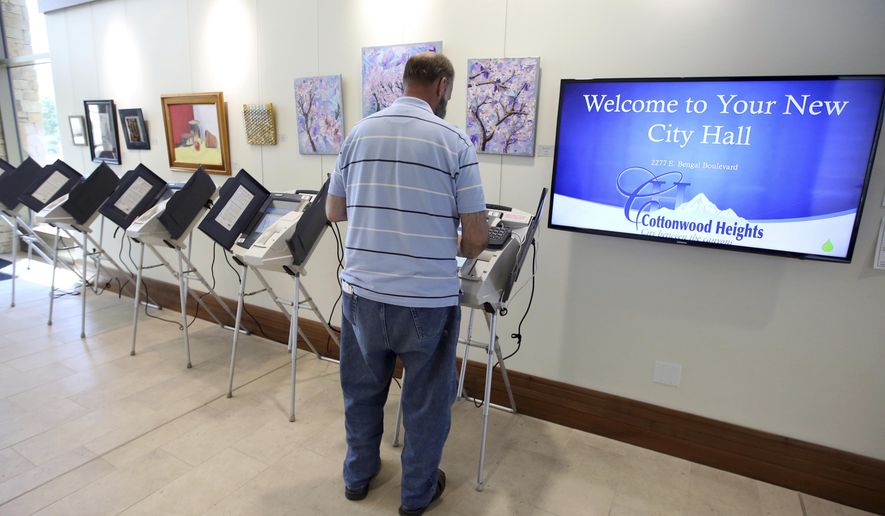Two members of the Senate Intelligence Committee introduced bipartisan legislation Tuesday aimed at safeguarding state election systems from foreign interference as their panel continues to probe Russia’s role in the 2016 U.S. presidential race.
The multifaceted cybersecurity bill introduced by Democratic Sen. Martin Heinrich of New Mexico and Republican Sen. Susan Collins of Maine would protect voting systems, registration data and ballots from being stolen or manipulated by malicious computer hackers by facilitating information sharing between federal and state election monitors while allocating government funds destined specifically for safeguarding election systems, among other measures, its sponsors said Tuesday.
Known as the Securing America’s Voting Equipment Act, or SAVE Act, the bill is the latest to emerge on Capitol Hill in response to U.S. intelligence officials concluding that Russian hackers targeted election systems in 21 states during last year’s White House race in addition to penetrating computer servers associated with the Democratic National Committee and the party’s presidential nominee, Hillary Clinton.
“Our democracy hinges on protecting Americans’ ability to fairly choose our own leaders. We must do everything we can to protect the security and integrity of our elections,” Mr. Heinrich said in a statement. “Until we set up stronger protections of our election systems and take the necessary steps to prevent future foreign influence campaigns, our nation’s democratic institutions will remain vulnerable.”
“While the Intelligence Committee’s investigation is still ongoing, one thing is clear: the Russians were very active in trying to influence the 2016 election and will continue their efforts to undermine public confidence in democracies,” Ms. Collins added. “The fact that the Russians probed the election-related systems of 21 states is truly disturbing, and it must serve as a call to action to assist states in hardening their defenses against foreign adversaries that seek to compromise the integrity of our election process.”
The bill requires the Director of National Intelligence to sponsor security clearances for election officials in each state so that the federal government can easily share classified information related to election threats with regional monitors. Additionally it authorizes funding for states to upgrade antiquated voting systems, establishes a “Cooperative Hack the Election” bug bounty program offering incentives for vendors to discover vulnerabilities and reiterates the U.S. Department of Homeland Security’s decision in January to designate election systems as “critical infrastructure,” a label making state election systems eligible for federal protections not otherwise guaranteed by law.
The bill was introduced the same day members of the Senate Judiciary Subcommittee on Crime and Terrorism questioned representatives from internet companies Google, Twitter and Facebook with respect to Russia’s online activities during the 2016 race, and the day after the first charges were made public in special counsel Robert Mueller’s investigation into matters related to Russia’s role in last year’s election.
Both the House and Senate Intelligence Committees are investigating Russia’s involvement in last year’s race, in addition to the Senate Judiciary Committee, the House Oversight and Government Reform Committee and Mr. Mueller’s team.
Bills previously floated by federal lawmakers in response to last year’s election include legislation requiring states to educate students about Russia’s involvement in the race and a bipartisan act regulating online political ads, among other measures.
Russia has denied meddling in the 2016 U.S. presidential race.
• Andrew Blake can be reached at ablake@washingtontimes.com.




Please read our comment policy before commenting.